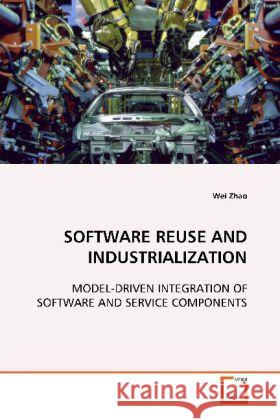SOFTWARE REUSE AND INDUSTRIALIZATION : MODEL-DRIVEN INTEGRATION OF SOFTWARE AND SERVICE COMPONENTS » książka
SOFTWARE REUSE AND INDUSTRIALIZATION : MODEL-DRIVEN INTEGRATION OF SOFTWARE AND SERVICE COMPONENTS
ISBN-13: 9783639116540 / Angielski / Miękka / 2009 / 260 str.
Building applications by composing pre-developed components has promise for reuse and software engineering industrialization. Model-Driven approaches not only elevate the abstraction of the development, but also leverage the integration tools for various supporting functionality such as analysis, transformation, simulation, optimization, and monitoring. A transformation framework, called Regular Expression Language is used for integration of service components. The integration requirements are depicted as a graphical process model and then are transformed into Business Process Execution Language (BPEL). We solved the theoretical difficulty to generate non-exponential BPEL when the process model presents irreducibility. We also present a Model-driven Domain-specific Integration Language to integrate the source or binary code of the software components. Two-Level Grammar++ is used to specify feature models so that the integration requirements can be validated against domain feature model specification. Glue/wrapper code generation is discussed for integrating heterogeneous components.











